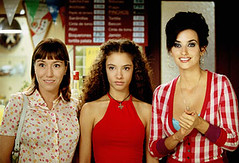
volver
Originally uploaded by goldteethblog.
(Landmark Sunshine Cinema, New York, NY; 12/26/06) Volver, a charming minor work by Pedro Almódovar, is probably my least favorite film by the great Spanish director.
Since the 1980s, Almódovar has delivered a successful string of florid and risky melodramas about Spanish women and their families. For his last two films, Almódvar focused his lens on men, with glorious results. He won an Academy Award for Best Screenplay for 2002’s Habla Con Ella (Talk to Her), a tender drama about two very flawed men in love with comatose women. 2004 saw the release of La Mala Educación (Bad Education), the director’s acclaimed and gripping Hitchcockian suspense tale about two male lovers connected by sexual abuse.
Volver, which means “to return” in Spanish, is an apt title for Almódovar’s latest, his comeback to the land of the lady. It marks another film about strong women, another great role tailored for Penélope Cruz (the two worked together on 1999’s Todo Sobre Mi Madre), but a small regression for the director.
With Volver, Almódovar tells a female-centric story that touches on all of his hallmark issues — death, abuse, deceit, family and friendship — but he lets the melodrama simmer instead of boil.
Most directors categorized by their penchant for the melodramatic offer laughable or cold results, but Almódovar has always turned high drama into high art. Check his earlier work, especially Madre, and you’ll find visually explosive and powerful films that can essentially be read as artful soap operas. Volver is a story made to be told with such roaring operatics and only traces of the intimate tone present in Habla Con Ella. Almódovar opts for the opposite this time, dampening what could have been a more lively, hot-blooded tale of lives rekindling with a tone too muted. It’s almost like he was timid about displaying his knack for flamboyance.
Cruz plays Raimunda, an overworked mother married to a vulgar drunk in Madrid. We meet Raimunda on one of her many trips to her hometown village, scrubbing away at her parents’ tombstone with the help of her teenage daughter Paula (Yohana Cobo) and her sister Sole (Lolela Dueñas). After refurbishing the gravesite, the women visit their geriatric and comically loopy aunt (Chus Lampreave), who’s on the verge of death herself. The first twenty minutes of the film play out slowly, establishing the central characters’ tight bonds and complicated relationships. Things pick up after Paula kills her father with a kitchen knife defending herself from his sexual advances, spurring Raimunda to hide the body and, in essence, take charge of her own life. Then, Sole returns to the village for her aunt’s funeral and comes back accompanied by her mother’s ghost.
Almódovar plays all of this surprisingly straight. He documents the strangeness and struggles Raimunda must endure after her husband’s death — which includes stuffing his body in a large freezer and burying it by a lake — with much less of the dark wit and high style he’s famous for. What follows are a number of diverting and funny, but only mildly compelling, scenes of Raimunda and her clan making sweet music, sometimes literally, out of their hard lives and painful pasts. Life changing secrets are exposed, the dead rise from the grave and a once-broken family finds solace from the harsh world within itself. It’s all well done, steadily tailored and glossed, but the bigger moments don’t pull you in like they should.
Cruz delivers like a champ despite the film’s mostly flat tone. The early raves for her performance are dead-on. She’s never been better, not even in her other much lauded Spanish-language work. Her verve here is infectious and her pain believable. She knew she was making a Pedro Almódovar film. It’s too bad the director seemed to be aiming for something else.






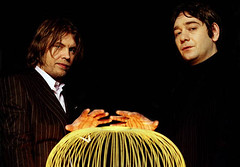



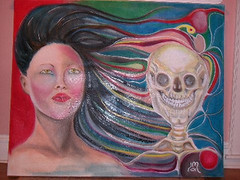








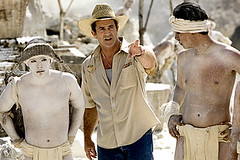






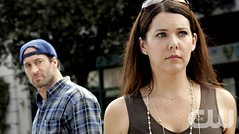




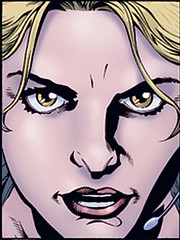

 Milo Ventimiglia: At first glance the "Heroes" cast member might seem a bit too Teen Beat to play Peter Parker, but he's proved himself a gifted actor with a pretty wide range. His evolution from multisyllabic angsty teen to multisyllabic zen art space owner on "Gilmore Girls" was impressive. He was funny as a closeted gay guy in "Cursed." Also, his super-powered character on "Heroes" is a TV copy of Peter Parker. The character's name, Peter Petrelli, is a dead giveaway.
Milo Ventimiglia: At first glance the "Heroes" cast member might seem a bit too Teen Beat to play Peter Parker, but he's proved himself a gifted actor with a pretty wide range. His evolution from multisyllabic angsty teen to multisyllabic zen art space owner on "Gilmore Girls" was impressive. He was funny as a closeted gay guy in "Cursed." Also, his super-powered character on "Heroes" is a TV copy of Peter Parker. The character's name, Peter Petrelli, is a dead giveaway. Jeremy Davies: Davies defintley has the look. He’s displayed the nerdy demeanor and the inner conflict needed to flesh out Peter Parker in a number of films (“CQ,” “Going All the Way,” “Spanking the Monkey”). Most people might know him from “Saving Private Ryan.” He might be too old, and too bizarre or intense, though. The guy did play Charles Manson once. (I also think Davies would be the perfect Young Spock).
Jeremy Davies: Davies defintley has the look. He’s displayed the nerdy demeanor and the inner conflict needed to flesh out Peter Parker in a number of films (“CQ,” “Going All the Way,” “Spanking the Monkey”). Most people might know him from “Saving Private Ryan.” He might be too old, and too bizarre or intense, though. The guy did play Charles Manson once. (I also think Davies would be the perfect Young Spock). Jake Gyllenhaal: The former poor man’s Tobey Maguire is the obvious choice. As stated above, he might have almost landed the part before. The A-lister has earned enough respect, and bank, for his work in films like “Brokeback Mountain” and “Jarhead” that he might pass on a “number 4” movie if the offer comes his way.
Jake Gyllenhaal: The former poor man’s Tobey Maguire is the obvious choice. As stated above, he might have almost landed the part before. The A-lister has earned enough respect, and bank, for his work in films like “Brokeback Mountain” and “Jarhead” that he might pass on a “number 4” movie if the offer comes his way. Topher Grace: Yeah, I know, he’s playing Venom in "Spider-Man 3." But, if that was not the case I think he’d nail it.
Topher Grace: Yeah, I know, he’s playing Venom in "Spider-Man 3." But, if that was not the case I think he’d nail it.